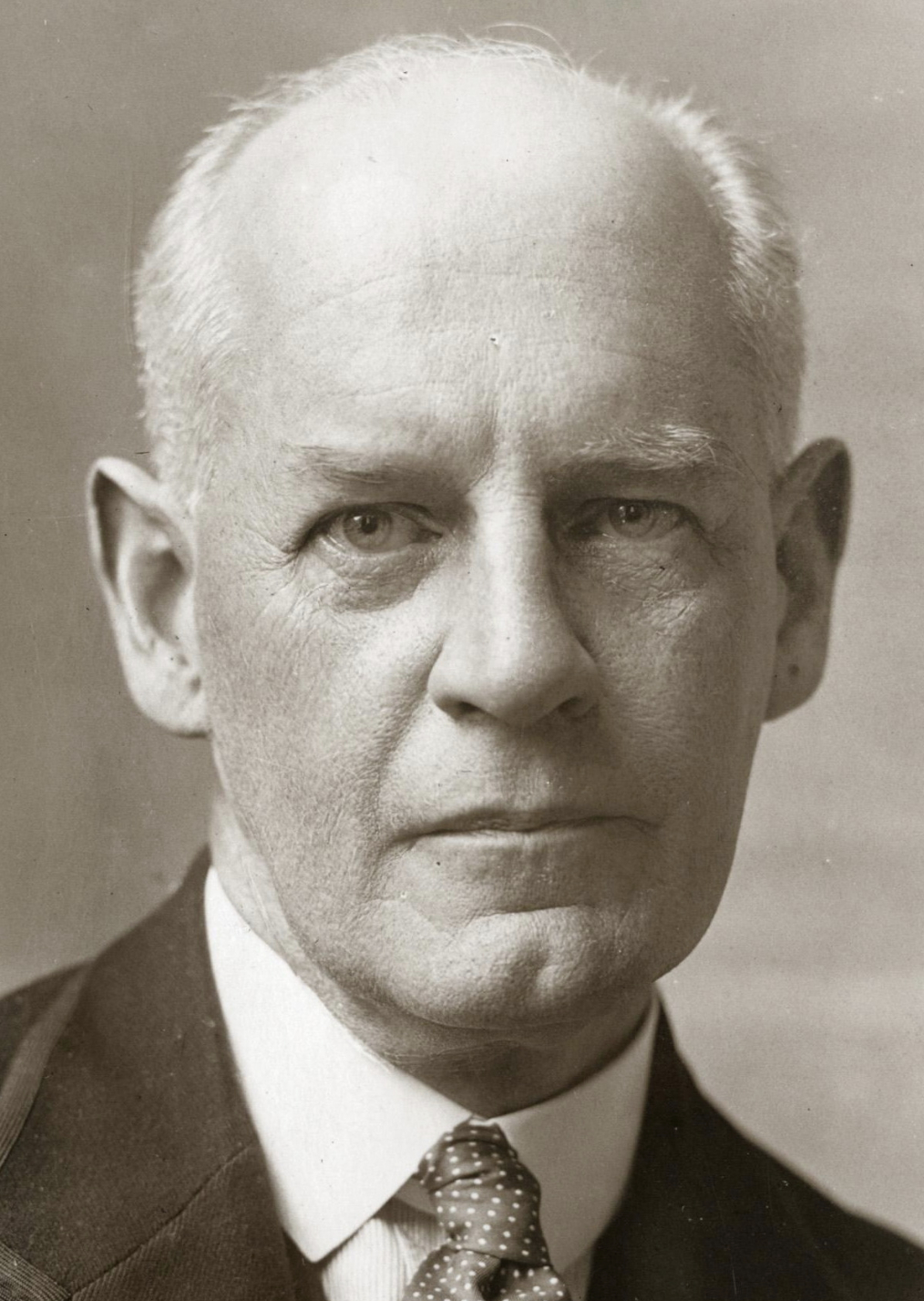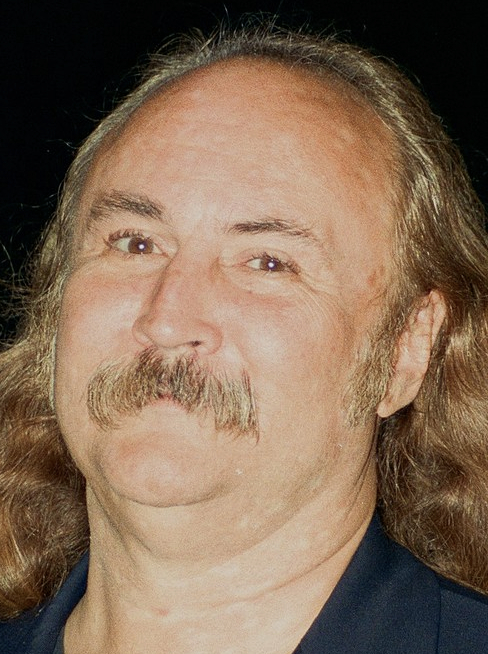August 14
John Galsworthy

On this date in 1867, John Galsworthy was born into an upper-class family in Surrey, England. Escaping the legal profession by travel, Galsworthy as a young man encountered Joseph Conrad on a trip to the South Seas. Conrad encouraged him to write and Galsworthy in turn later provided financial help for Conrad.
After self-publishing his first four books, Galsworthy wrote The Man of Property (1906), which established his reputation. It was the first of what would become “The Forsyte Saga,” made up of six novels plus a collection of stories written through 1931.
The candid and empathetically handled theme of marital rape, shocking to many would-be church censors, was reportedly inspired by the experiences of his wife, Ada Person Cooper, in her previous marriage. Galsworthy, always socially conscious, wrote 20 novels, 27 plays, poetry, more than 150 short stories and several books of essays.
He refused knighthood on grounds of principle in 1917, gave away half of his fortune and won the Nobel Prize for Literature in 1932 “for his distinguished art of narration which takes its highest form in The Forsyte Saga.”
His plays in particular dealt with social issues such as economic inequities, prison reform, anti-Semitism and mining strikes. Escape, his 1926 drama, was made into a 1948 movie by 20th Century Fox starring Rex Harrison. He died of a brain tumor at age 65 in 1933.
“Humanism is the creed of those who believe that, in the circle of enwrapping mystery, men’s fates are in their own hands — a faith that for modern man is becoming the only possible faith.”
— Galsworthy, quoted in "Humanism as a Philosophy" by Corliss Lamont (1997)
David Crosby

On this date in 1941, musician David Van Cortlandt Crosby was born in Los Angeles to Academy Award-winning cinematographer Floyd Crosby, who filmed the movie “High Noon” and many others, and Aliph Van Cortlandt Whitehead, who worked in sales at Macy’s. Her grandfather was the Episcopal bishop of the Diocese of Pittsburgh.
Crosby was an indifferent student and eventually earned a high school diploma by correspondence before enrolling at Santa Barbara City College to study drama. He started playing folk music in the early ’60s on a guitar gifted to him by his older brother Ethan, also a musician. They performed as a duo before David went solo and landed in New York’s Greenwich Village.
In 1964 he co-founded a new group, the Byrds, which burst into the national consciousness with their chart-topping single of Bob Dylan’s “Mr. Tambourine Man,” followed by “Turn! Turn! Turn!” and “Eight Miles High.” Political and musical differences led to him leaving the Byrds in 1968 after five albums. He teamed with Stephen Stills and Graham Nash, formerly of Buffalo Springfield and the Hollies, on their 1969 debut album “Crosby, Stills & Nash.” It was a smash hit on which Crosby wrote “Guinevere,” “Wooden Ships” and “Long Time Gone” (the last about Bobby Kennedy’s assassination).
Canadian rocker Neil Young joined the group after it had played at Woodstock. Crosby wrote their second album’s title track “Déjà Vu” and “Almost Cut My Hair” before releasing a critically panned solo album in 1971. Band members had started going off in different directions, and Nash and Crosby made three albums that all went gold.
Crosby’s serious troubles with the law started in 1982 and included serving nine months in Texas on drug and weapons charges. Three years later, he was arrested for drunken driving, hit and run and possession of a concealed pistol and imprisoned for a year. He was charged in 2004 with illegal possession of a hunting knife, ammunition and marijuana but got off with a $5,000 fine.
Crosby suffered from type 2 diabetes, and his use of hard drugs likely contributed to a hepatitis C infection, which necessitated a liver transplant in 1994. His 2006 autobiography “Since Then: How I Survived Everything and Lived to Tell About It” was co-written with Carl Gottlieb.
In 1987 at age 45, he married Jan Dance, a Florida recording studio receptionist who was 35. Stills gave the bride away at the Hollywood Church of Religious Science on Sunset Boulevard, with Science of Mind minister Robert Bitzer officiating. They stayed married until his death and had a son, Django, in 1995.
Crosby’s first child, a son given up for adoption, was born in 1962. He and James Raymond reunited 35 years later and went on to form the jazz-rock band CPR. He also had two daughters with former domestic partners Jackie Gutherie and Debbie Donovan and was the sperm donor for Julie Cypher’s two children with singer Melissa Etheridge.
Crosby was inducted into the Rock and Roll Hall of Fame twice: once for his work with the Byrds and again for his work with CS&N. He released what would become his final studio album, “For Free,” in 2021.
Crosby had no time for religion and wasn’t shy about saying so on Twitter as @thedavidcrosby: “Does anyone know of a religion that does NOT class women as less than men?” (Oct. 23, 2014) “Generally, historically … religion has been a force for divisiveness and destruction.” (March 31, 2018) “Faith always tried to be superior to science … claimed superiority over science … but nobody with brains ever bought that story.” (March 12, 2022)
The day before he died at age 81 at his horse ranch in Santa Ynez, Calif., he joked in response to a screenshot of a Google search that asked “can we go to heaven with tattoos?” Crosby tweeted: “I heard the place is overrated … cloudy.” His family said he died from an unspecified “long illness,” but Graham Nash said a few days later that he died in his sleep after contracting COVID-19 for the second time. He had been working on plans for a new album. (D. 2023)
“I don't believe in God, and I'm not really a big fan of religion, any of them.”
— Interview in which he recalled telling Beatle George Harrison in the 1960s that he should take "with a grain of salt" what an Indian guru was telling him. (Rolling Stone, Oct. 12, 2021)
